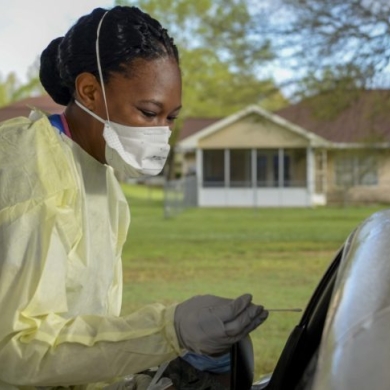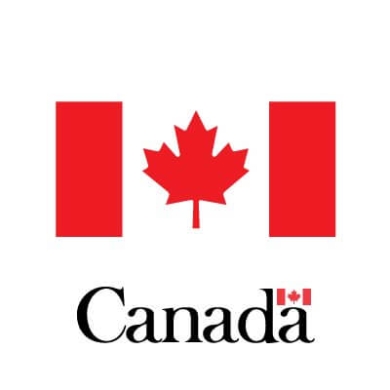1 avril 2020
COVID-19 is the most disruptive event to hit the world's economy and nations since World War II, and the end is nowhere in sight.
So how will the mix of business shutdowns, self-isolation, and plummeting government tax revenues (further depleted by COVID-19 relief spending) affect the Canadian defence industry? At this early stage, it is impossible to provide a definitive answer. That said, the companies and experts contacted by CDR provided some insights into the problem; based on their best assessments of what is going on.
EXPECT DELAYS IN PROCUREMENT DECISIONS
COVID-19 is bad news for Canada's defence procurement process. It has already resulted in delays to current projects, such as Irving Shipyards closing down work on the Canadian Surface Combatant in mid-March. It could also delay ongoing procurements such as the Future Fighter Capability Project, which is due to receive proposals from Boeing, Lockheed-Martin, and Saab by June 30, 2020.
“In a situation like this, the key decisions are put off in government,” said Alan Williams, (During his 33 years in the federal civil service, Williams was Assistant Deputy Minister, Supply Operations Service in Public Works and Government Services Canada for five years; followed by fives years as DND's Assistant Deputy Minister of Materiel.) “Now you can do a lot of the paperwork associated with the procurement; including reviews and evaluations. But until things get back to normal, the key decisions will be put off.”
AIRBUS HELICOPTERS REMAINS OPEN
Canadian Airbus Helicopter operators can count on getting service during the COVID-19 shutdown. The reason: “Airbus Helicopters Canada qualifies as an essential workplace in the Province of Ontario,” said Dwayne Charette, the company's President/COO. “This allows us to continue to support our customers operating their helicopters to save lives, protect people and maintain critical infrastructure both in Canada and around the world. Our customers, including law enforcement agencies, militaries, emergency air medical service operators, and utility companies, are all relying on us to ensure they can continue to perform their critical missions and we have a responsibility to support them.” (In maintaining operations, Airbus is following approved COVID-19 infection-prevention procedures.)
When it comes to Airbus Defence and Space Canada's contracts with the Canadian Armed Forces for CC-295 fixed-wing search and rescue (FWSAR) aircraft, “We are closely monitoring the situation and are in close contact with our customers,” said company President Simon Jacques. “We will review the situation once operations resume.” (Airbus delivered the first of 16 CC-295s to the RCAF in January 2020.) Airbus is also looking into producing critical medical equipment, in line with the federal government's plea to industry.
MV ASTERIX READY TO HELP, DAVIE STILL RUNNING
The Canadian Armed Forces are primed and ready to help with COVID-19 relief across Canada. So is Federal Fleet Services, which owns and operates the MV Asterix supply ship on behalf of the Royal Canadian Navy. At the moment, it is sitting crewed and ready for action in Halifax.
“When we first designed the MV Asterix, we did a lot to ensure that it was ready for humanitarian assistance and disaster relief,” said Alex Vicefield, chairman and CEO of Inocea Group; the parent company for Federal Fleet Services and Davie Shipbuilding. This is why the MV Asterix has an operating theatre, Intensive Care Unit, and other medical facilities onboard; ready to sail to whatever accessible port the federal government sends it to.
“The Asterix is ready to serve as a scaled-down hospital ship; if it were needed for that,” said Vicefield. The ship's hospital even has its own separate HVAC system that would keep the air breathed by COVID-19 patients separate from the rest of the air circulating throughout the ship.
Meanwhile, Davie Shipbuilding is continuing to convert three Swedish oil and gas icebreakers to serve with the Canadian Coast Guard. “We're not going to stop this project, obviously, because those are important national security assets for Canada,” said Vicefield.
He explained the need to boost Canada's icebreaking capacity without delay in terms COVID-19's possible impact on US food exports to Canada. If this year's US crop yields are slashed due to pandemic deaths and social isolation, “the potential for that food supply to stop coming over the border would make Canada more reliant on foreign ships coming from Europe and so on,” Vicefield told CDR. “So the need for icebreakers is even more pressing.”
TERRANOVA PITCHES IN
Before COVID-19 hit, Terranova Defense Solutions was focussed on providing drones for air, land, and water applications; including its remotely-controlled Dolphin One water rescue drone. Now that COVID-19 is here, the company intends to answer Ottawa's call for help by adding much-needed medical supplies to its product roster.
“Terranova Defense Solutions has already engaged with other companies to global source medical supplies for Canada,” said company President/Founder James Castle. “We are currently waiting for a response from the Canadian government to the next steps and we are prepared to help Canada in whatever way we can for no profit to best serve our Canadian family.”
Thanks to its mainstream drone business, Terranova Defense Solutions already has procurement relationships with international partners. “These groups have been working with us as one united front -- helping Canadians through our Call to Arms against COVID-19 – to help us in sourcing new Europe CE and US FDA Certified medical supplies and ventilators for those in need,” said Castle. This said, “Finding transportation and funding to purchase and ship these items has been a challenge.”
Looking ahead, “The main challenge facing us at this time is the uncertainty of what the landscape will look like following the pandemic,” Castle told CDR. “We believe that, while there will be negative impacts to the industry, there are and will be opportunities for companies that provide fresh and innovative solutions to the country going forward.”
CAE TAKES TOUGH STEPS
As detailed in a March 23, 2020 webcast to investors, CAE sees COVID-19 as “a crisis of unprecedented speed and magnitude,” said Marc Parent, CAE's President and Chief Executive Officer. To manage its way through the pandemic's economic impact, CAE farsightedly formed a crisis committee in January 2020. As of March 23rd, “we're taking immediate steps to preserve cash by cutting capital expenditures and reducing operating expenses, including temporary layoffs and salary cuts across the board,” Parent said.
In response to a CDR question about the impact of COVID-19 on CAE's defence projects, Parent noted that the company's defence training programs are service level agreements with government clients. This means that payments associated with these defence agreements are not reliant upon actual usage by clients, which is the case with CAE's civil aviation training programs.
“We're providing critical services here too, and the US government has recently articulated the absolute necessity of this activity,” said Parent. This said, some US bases have restricted access to their facilities; specifically by imposing 14-day quarantine pre-entry requirements on people from 100 miles outside of these installations.
“Anything and everything that has to do with the movement and cooperation of people is more challenging in this environment,” Parent said. “So we've been impacted in terms of getting orders fulfilled, just because of that; getting access to the people, meeting face-to-face ... As well, the general preoccupation with the crisis clearly has an impact on the speed of the procurement processes.”
The only good news for CAE in the COVID-19 crisis is that “we have approximately a $4 billion backlog in defence, which provides us with a good source of diversification and visibility,” said Parent. “Longer term, we don't see an obvious structural impact on defence. But I think we can anticipate some short-term friction as we move through this period.”
AFTER CANCELLING CANSEC, CADSI TAKES UPBEAT APPROACH
COVID-19 is proving to be difficult for the Canadian Association for Defence and Security Industries (CADSI); most notably because it has cancelled plans to stage the CANSEC 2020 global defence and security trade show in Ottawa May 27-28, 2020.
The bad news was announced on March 31, 2020, during CADSI's Annual General Meeting (which, due to COVID-19, was held as a teleconference.) “As you can imagine, the decision was not made lightly,” said CADSI President and CEO Christyn Cianafarani. The reason CADSI took so long to cancel this year's CANSEC – compared to other COVID-19 related event cancellations – is because “it has a $10 million impact on the local Ottawa economy,” she explained. “We took the time necessary to explore every possible option with the City of Ottawa, our partners, contractors and suppliers to mitigate the losses to our community, in order to secure the long-term viability of CANSEC.”
Despite the loss of CANSEC 2020, Cianafarani is taking an upbeat approach to the pandemic, by focussing on the good things her members are doing for Canada.
“Throughout this crisis, the Canadian defence and security sectors have stepped up to support where help is most needed,” Cianafarani told CDR. “Companies from coast-to-coast have refocused their attention to produce in-demand equipment like N95 masks, gloves, testing kits, shelters and ventilators needed to protect health care workers, patients, and the public. With the rise in online activity, cyber defence and security companies have offered free cyber protection services to hospitals, medical supply chains and other essential service providers.”
“These are just some examples,” she continued. “At the Association level, we are working hard to ensure companies facing hardships and challenges are connected to the government programs best placed to help them get through these exceptional economic times.”
AIAC SEEKS ‘ESSENTIAL SERVICE' STATUS
In an emergency like the COVID-19 pandemic, access to aviation is vital. This is why the Aerospace Industries Association of Canada (AIAC) – in association with AIAC member companies and regional aerospace industry associations – “has been calling for action from the Prime Minister and Premiers to designate the aerospace, defence and space sectors an essential service in all of Canada's provinces and territories,” said AIAC President and CEO Jim Quick. “Canada's aerospace industry is doing vital work -- providing products, services and solutions for a variety of purposes including emergency medical services and the transportation of vital medical equipment, domestic and international transportation, firefighting, search and rescue, telecommunications, border and maritime patrol and security, law enforcement, and military operations and support -- and it needs a consistent approach across the country.
Not surprisingly, the global shutdown is seriously affecting AIAC member companies. To help them weather the storm, “we've been actively reaching out to our members, letting them know we are here to assist in any way we can during this crisis,” said Quick. To achieve this the AIAC is sending out a daily ‘News You Can Use' COVID-19 update that outlines the latest aerospace industry related news and announcements. The association has also launched a specialized 'COVID-19 Updates and Resources' website page for the latest on government resources on stimulus, subsidies, webinars and more; plus holding briefings with federal cabinet members.
As well, “Aerospace is responding to the government's call for retooling to convert operations to deliver on needed supplies such as ventilators, masks and other essential supplies and equipment,” Quick told CDR.
CDAI POLLS SHOWS SOLID SUPPORT FOR CAF INTERVENTION
88% of Canadians believe that the Canadian Armed Forces have a role to play in supporting civilian authorities manage and mitigate the COVID-19 outbreak, according to a survey conducted by the Conference of Defence Associations Institute (CDAI) and Ipsos Canada.
Based on a March 20-23, 2020 online survey of 2,000 Canadians aged 18+, the poll foreshadowed Ottawa's decision to publicly commit the CAF to COVID-19 relief on March 30, 2020.
Among the CDAI/Ipsos Canada poll findings:
65% supported the CAF helping to deliver medical and other supplies to service providers and the Canadian public;
64% were okay with the CAF supporting Canadian law enforcement agencies;
58% supported the continued use of CFB Trenton to quarantine at-risk or infected travellers/evacuees;
54% wants the CAF to help with evacuating and medical transporting infected Canadians.
"I am not surprised by these survey results,” said LGen (Ret'd) Guy Thibault, CDAI Chair and former Vice-Chief of Defence Staff. “Time and again Canadians have seen the outstanding professionalism and critical contributions of the men and women of the Canadian Forces in humanitarian missions and natural disaster relief operations abroad and at home. There is no more important mission for the Forces than protecting Canadians in times of great need, and they are a highly respected and trusted national institution.”
http://www.canadiandefencereview.com/Featured_content?blog/168







